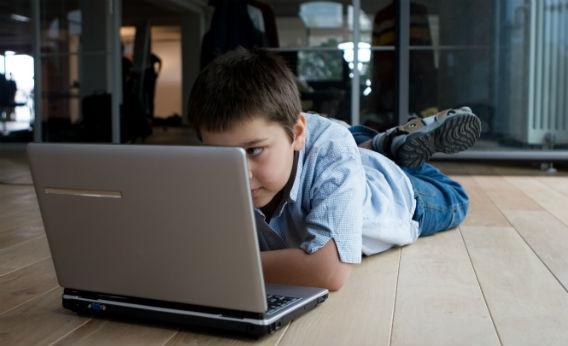Welcome to the social media race wars: Today’s technologically-connected young bigots tweet their epithets (“We hang faggots like you around here”) and Tumbl their threats (“Hispanic people—please go back to Mexico”). Then, online watchdogs publicly shame the worst offenders. Hello There, Racists! compiles the racist minors’ publicly-available names, photos, and contact information for everyone to see. Jezebel takes the extra step of tattling on them to their schools.
But a new study from the Pew Research Center should make us think before we shame. The kids we’re outing aren’t necessarily the Internet’s biggest assholes. They’re just its least-fortunate assholes.
Pew interviewed 800 American teenagers and their parents about how they interact online, and found significant class disparities in how families deal with their kids’ dumbest status updates. While most parents express concern about what their kids are Facebooking, Pew found that higher-income parents are more likely than low-income parents to help their kids set up privacy settings on social network sites. And though 44 percent of parents feared how their kids’ online activity “might affect their future academic or employment opportunities,” parents in low-income households expressed less concern than middle-class parents did. Interestingly, high-income parents weren’t too worried, either—maybe because they’d already hidden their kid’s Facebook and Twitter accounts from public view.
Pew also found an education gap in parents who take an active role in their kids’ social lives. Seventy-five percent of college-educated parents were active on social media, compared to 59 percent of those who hadn’t attended college. That’s a problem, because parents who stalk their teenagers online can actually help them self-censor themselves—or at least by their very presence force their kids to figure out how to block parents (and others) from accessing their accounts. Both strategies help these teens avoid public shaming. One 14-year-old boy told Pew that adding his family members on Facebook helped him set standards of engagement for himself. “I remember like my mom told me don’t put anything you wouldn’t want your grandparents to see or something,” he said. Another 13-year-old girl said that her parents’ friend requests inspired her to retool her privacy settings “so they can’t see my page or anything on it.” Dealing directly with different groups of people online helped these kids understand that their pubescent thoughts weren’t necessarily appropriate for all audiences. “It’s not that you necessarily have anything to hide,” one 12-year-old girl told researchers. “It’s just everyone’s different around their family members than they are with their friends.”
The children of highly-educated, high-income parents aren’t necessarily less racist than their peers. But they are more equipped to hide their worst thoughts from college admissions counselors and pesky journalists—meaning that they’re more likely to secure the employment and education opportunities that could help them change their tune.
